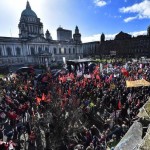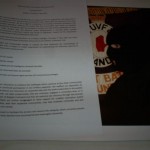Rupert Brooke: The Soldier
Rupert Brooke was born in Rugby, Warwickshire in August 1887. He was schooled at Rugby Independent School before taking up a residency at Kings College Cambridge. Whilst there he was elected president of the Fabian Society. Quite quickly he became an established poet and subsequently became part of both the Bloomsbury set and the Georgian Poets. By1914 he had also become known for his war poetry. In early 1915 he was given a commission as a temporary Sub Lieutenant within the Royal Naval Volunteer Reserve. He sailed to the Mediterranean as part of the British Mediterranean Expedition Force. He was bitten by a mosquito and developed sepsis from which he never recovered. He died on the 23rd April on board a French Hospital ship whilst on route to Gallipoli. The boat had been moored near the island of Skyros. Because the ship had to sail immediately Brooke was buried in an olive grove on the island.
Brooke’s younger brother William was a Second Lieutenant in the 8th Battalion of the London Regiment. He had only been with the battalion for 3 weeks when he was killed in action at Le Rutiore farm in Northern France in June 1915-two months after Rupert’s death.
Rupert Brooke is remembered as one of the greatest of World War One poets and below is possibly his greatest poem.
Rupert Brooke
The Soldier
IF I should die, think only this of me:
That there’s some corner of a foreign field
That is forever England. There shall be
In that rich earth a richer dust concealed;
A dust whom England bore, shaped, made aware,
Gave, once, her flowers to love, her ways to roam,
A body of England’s, breathing English air,
Washed by the rivers, blest by the suns of home.
And think, this heart, all evil shed away,
A pulse in the eternal mind, no less
Gives somewhere back the thoughts by England given;
Her sights and sounds; dreams happy as her day;
And laughter, learnt of friends; and gentleness,
In hearts at peace, under an English heaven.
Beano.







